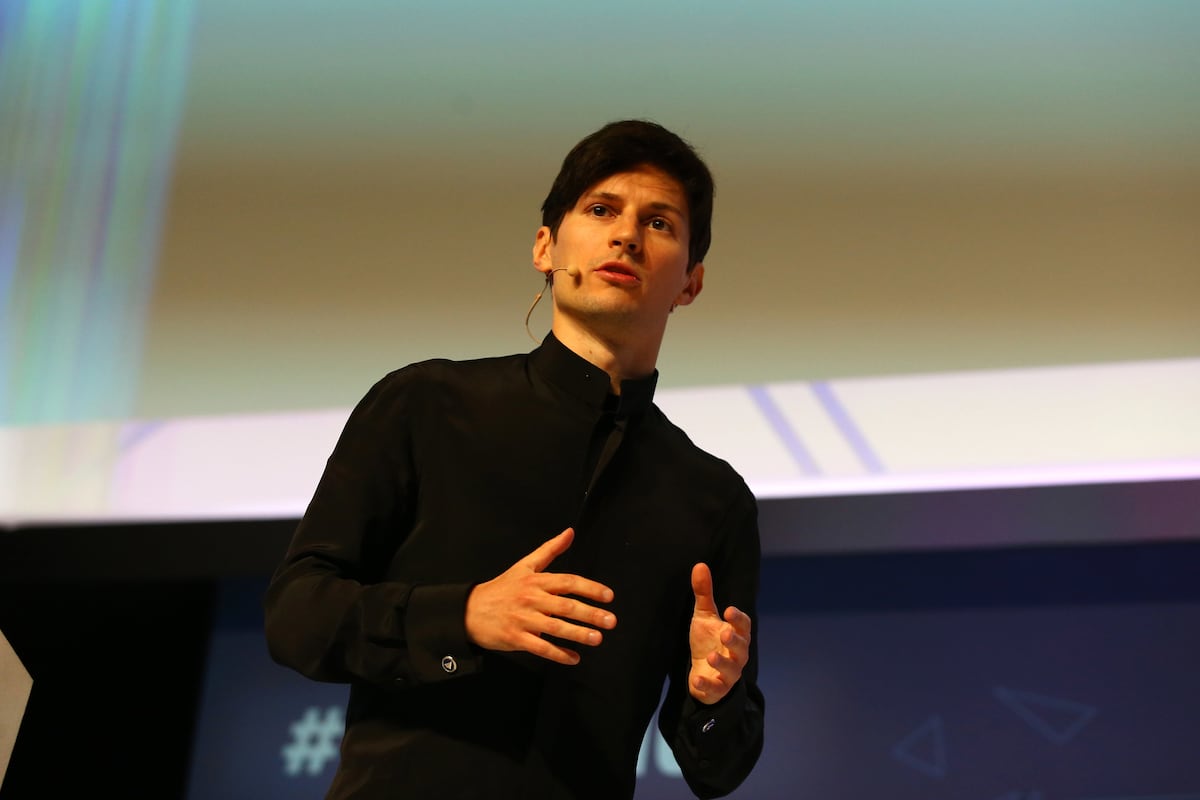French justice charges the founder of Telegram and releases him on bail | International

This Wednesday, the French judge convicted the founder and CEO of Telegram, Pavel Durov, on charges ranging from money laundering to involvement in the dissemination of pedophile images. The Russian-born billionaire, who was detained for four days, has been released on bail of five million euros and, in addition to being banned from leaving France, he must report to the police twice a week.
The arrest of Durov – who has assets of around 14,000 million euros according to Forbes – took place last Saturday at Le Bourget airport on the outskirts of Paris, within the framework of an investigation into cybercrime and specifically 12 crimes related to illegal transactions, child pornography, fraud and refusal to communicate information to the authorities, according to the prosecutor’s office. The investigating judges asked the Center for the Fight against Digital Crime (C3N) and the National Office for the Fight against Fraud (ONAF) to continue their investigation.
The founder of Telegram, with French-Russian nationality but living in Dubai, is the subject of several legal proceedings in France for not taking action to prevent organized crime on his social network and not cooperating with the authorities investigating these crimes. The lack of moderation on the platform, where drug trafficking, cryptocurrency fraud or advocacy for terrorism take place, is at the heart of the case.
Each platform controls this illegal content as much as possible and, in addition, all receive thousands of requests from governments to reveal the identities of users who share criminal content. Most companies accept these requests and cooperate with the authorities. The charges against Durov mention his “complicity” or lack of attention and cooperation with the authorities and even “association with criminals”, which is punishable by five years in prison.
Telegram, which has 950 million active users, allows the creation of groups with up to 200,000 members, which also makes it a content platform. These groups are created based on common interests: they can be political, cultural or information on a specific topic. Audiovisual piracy groups are also growing rapidly.
Both Russia and the United Arab Emirates government have requested diplomatic access to the accused. For his part, French President Emmanuel Macron on Monday published a message on the social network X denying that Durov’s arrest was “a political decision” and defending the independence of the judiciary. “France is and will remain deeply committed to freedom of expression and communication, to innovation and the entrepreneurial spirit. Freedom is protected within the legal framework, both in social networks and in real life, to the rule of law, to the safety of citizens and to respect their fundamental rights,” he said.
To know what happens outside is to understand what will happen inside, don’t miss anything.
keep reading
For its part, Telegram said in a statement that its CEO has nothing to hide and that he frequently travels to Europe. “It is absurd that a platform or its owner is responsible for abuse on its platform. (…) We hope for a quick resolution of this situation,” the company said. It pointed out that its messages are secure thanks to its encryption and that it does not collect or reveal information about its users, and that it complies with EU standards and that its moderation system “is adjusted to industry standards and is constantly improving.”
Durov left Russia in 2014 after refusing to comply with demands to close opposition communities on his VK social media platform, which he later sold. Together with his brother Nikolai, he founded Telegram in 2013 and positioned himself as a champion of freedom of expression. In fact, he revealed that some governments had tried to put pressure on him, but that his application must remain a “neutral platform” and not an “actor in geopolitics.”
Durov’s obsession with internet freedom and user anonymity has remained in full swing ever since. However, it does not distinguish in this sense between authoritarian regimes that seek to silence dissidents and judges in democratic countries who want to prevent the spread of pedophile material or piracy.
Follow all international updates Facebook And Xor in Our weekly newsletter,
(TagstoTranslate)Telegram
